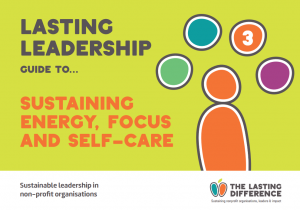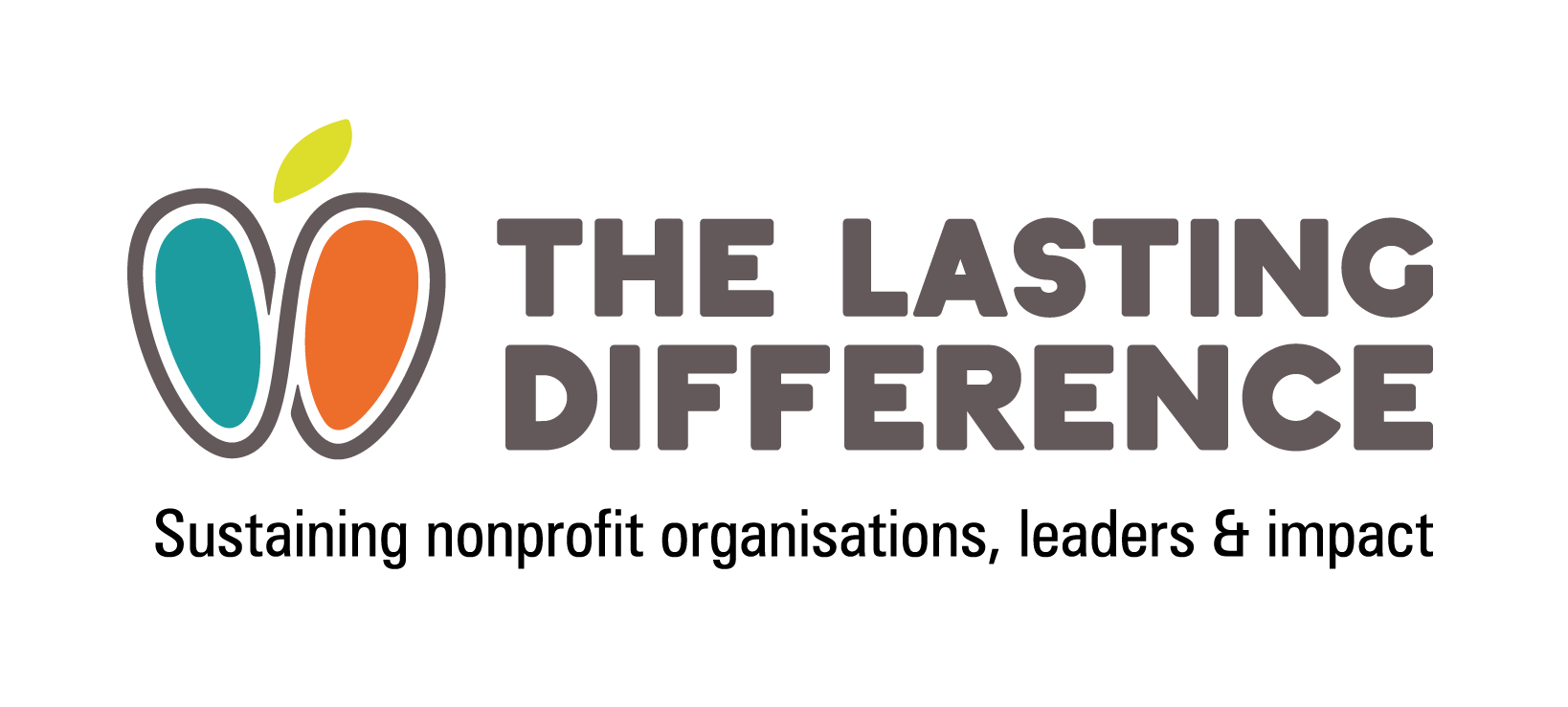Sustainable leaders look after themselves and the people around them. If our people and organisations don’t take care of themselves, they can’t do their best work for the people, communities and issues they serve. Our new guide takes a fresh approach to sustaining energy, focus and self-care.
The challenge
Too many funders and charities treat management, support, training and reflective practice like overheads or distractions, not core activities.
Too many people think that doing the best they can means doing the most they can.
This might make them seem heroic for a time, but in the long run it leads to exhaustion. The pandemic has intensified the problem. Working in crisis management mode has led to burnout. Almost half of third sector leaders are considering walking away as a result of these increased pressures (1). Key people and knowledge are leaving the sector. It is getting harder to recruit new staff and volunteers.
Organisational responses
The pandemic led to many positive changes in the way organisations worked.
- Charities reviewed their purpose and missions and proved their ability to make large scale changes overnight.
- New working patterns were introduced and more time was spent on team communication.
- Colleagues recognised each other as whole people, with lives, families, pets, interests and commitments outside work.
- New leaders emerged, making decisions and taking responsibility for doing what needed to be done.
At the same time, the crisis created many new challenges. New ways of working created new expectations of what (and how much) was possible. Working from home soon became something else: living at work.
Self-care – an organisational responsibility
Just like people, organisations can adopt short-term emergency responses to traumatic situations. Long-term resilience can come from these responses. But they can also become exhausting, counterproductive long-term behaviours. Transitioning out of crisis responses, requires an organisational approach to energy, focus and self-care.
Self-care should never be seen solely as an individual responsibility.
We already know the conditions for doing our best work. To create them. We must break the cycle and the rules we make for ourselves. We can manage our organisations, our energy and our focus better.
Your new free guide
The new guide to Sustaining Energy, Focus and Self-care addresses each of these in turn. It legitimises self-care as a core part of organisational sustainability. It tries to avoid the usual yoga and yoghurt cliches that put more pressure on people to live up to other people’s ideals. Instead, it shares four straightforward practices for organisations, and four for individuals.
Organisational practices
- Support good governance
- Manage capacity
- Let your yes be yes and your no be no
- Value leadership
Individual practices
- Prioritise self-care
- Invest time, don’t spend it
- Be authentic, find congruence
- Know yourself
Explore each of these for yourself in the free guide, with helpful self-assessment checklists and templates for action. As usual, it’s a writeable PDF, letting you make your own notes (including an inspiring introduction to the ‘sun, moon and stars’ of self-care).
Download it and our other Lasting Leadership guides here:
https://www.thelastingdifference.com/resources/lasting-leadership/

Reference:
1. https://www.charitytimes.com/ct/charity-ceos-overworked-acevo-survey-finds.php
